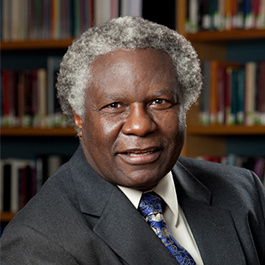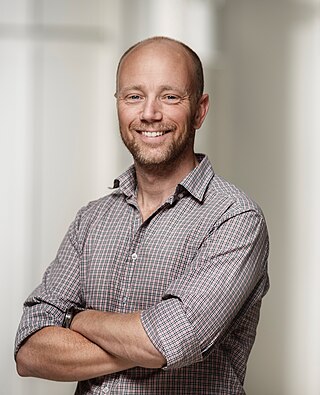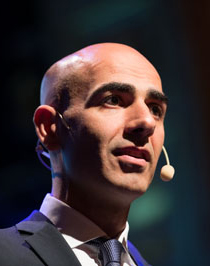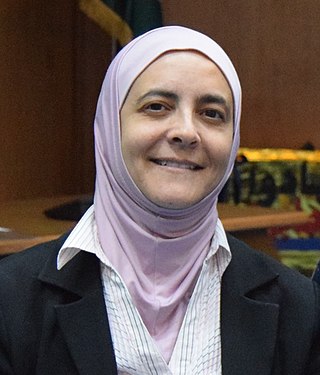
The Right Livelihood Award is an international award to "honour and support those offering practical and exemplary answers to the most urgent challenges facing us today." The prize was established in 1980 by German-Swedish philanthropist Jakob von Uexkull, and is presented annually in early December. An international jury, invited by the five regular Right Livelihood Award board members, decides the awards in such fields as environmental protection, human rights, sustainable development, health, education, and peace. The prize money is shared among the winners, usually numbering four, and is €200,000. Very often one of the four laureates receives an honorary award, which means that the other three share the prize money.
The World Summit Awards (WSA) rewards Information and Communications Technologies projects that have a positive impact on society at the local level. The award was initiated in 2003, within the framework of the United Nations World Summit on the Information Society. After the UN General Assembly adopted Resolution 56/183. The awards are open to companies, organizations, or individuals from any of the UN and the UNESCO Member States. They are divided into 8 different categories. The world summit awards are managed by the International Center for New Media (ICNM), a non-profit organization based in Salzburg, Austria. ICNM was founded by Peter A. Bruck, in 2002.

Calestous Juma was a Kenyan scientist and academic, specializing in sustainable development. He was named one of the most influential 100 Africans in 2012, 2013 and 2014 by the New African magazine. He was Professor of the Practice of International Development and Faculty Chair of the Innovation for Economic Development Executive Program at Harvard Kennedy School. Juma was Director of the School's Science, Technology and Globalization Project at Harvard Kennedy School as well as the Agricultural Innovation in Africa Project funded by the Bill and Melinda Gates Foundation. His last book, Innovation and Its Enemies: Why People Resist New Technologies, was published by Oxford University Press in 2016.
Corporate Knights is a media and research company based in Toronto, Canada, focused on advancing a sustainable economy. The company publishes a magazine, Corporate Knights, and produces global rankings, research reports, and financial product ratings based on corporate and environmental sustainability performance, including the "Global 100 Most Sustainable Corporations in the World" and the "Best 50 Corporate Citizens in Canada".
Scandic Hotels is a hotel chain headquartered in Stockholm, Sweden, with its main operations in the Nordic countries. Alongside hotels in Sweden, Norway, Finland and Denmark, the company also has a presence in Germany and Poland. As of 31 December 2018, the company had 11,560 employees and operated 283 hotels with 51,693 guest rooms.

John Thackara is a British-born writer, advisor and public speaker. He is known as curator of the celebrated Doors of Perception conference for 20 years, which started in Amsterdam. He is a senior fellow at the Royal College of Art in London.

Sun Pharmaceutical Industries Limited is an Indian multinational pharmaceutical company headquartered in Mumbai, that manufactures and sells pharmaceutical formulations and active pharmaceutical ingredients (APIs) in more than 100 countries across the globe. It is the largest pharmaceutical company in India and the fourth largest specialty generic pharmaceutical company in the world. The products cater to a vast range of therapeutic segments covering psychiatry, anti-infectives, neurology, cardiology, diabetology, gastroenterology, ophthalmology, nephrology, urology, dermatology, gynecology, respiratory, oncology, dental and nutritionals.

Planet Forward, a project of The George Washington University's School of Media and Public Affairs, is an online public forum where experts, engaged citizens and students weigh in on energy, climate and sustainability. The most inventive and creative ideas are featured online.
David William Schindler,, was an American/Canadian limnologist. He held the Killam Memorial Chair and was Professor of Ecology in the Department of Biological Sciences at the University of Alberta in Edmonton, Alberta. He was notable for "innovative large-scale experiments" on whole lakes at the Experimental Lakes Area (ELA) which proved that "phosphorus controls the eutrophication in temperate lakes leading to the banning of phosphates in detergents. He was also known for his research on acid rain. In 1989, Schindler moved from the ELA to continue his research at the University of Alberta in Edmonton, with studies into fresh water shortages and the effects of climate disruption on Canada's alpine and northern boreal ecosystems. Schindler's research had earned him numerous national and international awards, including the Gerhard Herzberg Gold Medal, the First Stockholm Water Prize (1991) the Volvo Environment Prize (1998), and the Tyler Prize for Environmental Achievement (2006).

The Swiss Federal Institute of Aquatic Science and Technology is a Swiss water research institute and an internationally networked institution. As part of the Swiss Federal Institutes of Technology Domain, it is an institution of the Federal Department of Home Affairs of the Swiss Confederation. The Eawag is based in Dübendorf near Zurich and Kastanienbaum near Lucerne.

John Mikael Holtz Elvesjö, is a Swedish entrepreneur and inventor.
Hans Hassle is a Swedish businessman who focuses on corporate social responsibility. He runs the management consultancy company evolution? AB and was the General Secretary of Plantagon International Association.

Scalado was a provider of imaging technologies, applications and engineering services for the camera (phone) industry.

Saeid Esmaeilzadeh, born in 1974 in Teheran, Iran, is a Swedish scientist with a PhD in Inorganic Chemistry, and a multi-award-winning serial entrepreneur who has founded over 30 companies. He is currently the executive chairman and co-founder of the family-owned investment company EHAB, Esmaeilzadeh Holding, with over a hundred companies.
The Global Child Forum is a Swedish non-profit foundation, based in Stockholm, Sweden. The organization was founded by King Carl XVI Gustaf and Queen Silvia of Sweden in 2009 in order to advance children’s rights in accordance with the UN Convention on the Rights of the Child.

Magda Gad is a Swedish war correspondent and Middle Eastern analyst who writes, photographs and films her stories.

Rana Dajani is a Palestinian-Jordanian molecular biologist and tenured professor of biology and biotechnology at Hashemite University. She earned her Ph.D. in molecular biology from the University of Iowa. Dajani is an expert on genetics of Circassian and Chechen populations in Jordan, also on conducting genome-wide association studies on diabetes and cancer on stem cells. Her work in stem cell research initiated the development of the Stem Cell Research Ethics Law and all regulations in Jordan. She is an advocate for the biological evolution theory in relation to the religion of Islam, and believes strongly in the education and empowerment of women, being a member of the United Nations Women Jordan Advisory Council. She is the recipient of the Jordan's Order of Al Hussein for Distinguished Contributions of the Second Class.

Anna Borgeryd was a Swedish entrepreneur, author and blogger. She was Chief Strategy Officer at Polarbrödsgruppen.
Professor Mercedes Maroto-ValerFRSE FRSCFIChemEFRSA FEI is Champion and Director of the UK Industrial Decarbonisation Research and Innovation Centre (IDRIC) focused on accelerating the transition to net zero of the UK largest industrial clusters and establishing the first world net-zero industrial cluster. Maroto-Valer is Deputy Principal at Heriot-Watt University, leading institutional and global changes in sustainability, making an impact on achieving the United Nations Sustainable Development Goals and working with partners to achieve global carbon reduction targets. She is also director of the Research Centre for Carbon Solutions (RCCS) at Heriot-Watt University, where she holds the Robert Buchan Chair in Sustainable Energy Engineering. RCCS that is a multidisciplinary centre delivering innovation for the wider deployment of low-carbon energy systems required for meeting net-zero targets. Her track record covers energy systems, CCUS carbon dioxide capture and storage, integration of hydrogen technologies and low carbon fuels. Her work has been recognised through various awards and prizes, including the Philip Leverhulme Prize for Engineering in 2009.











